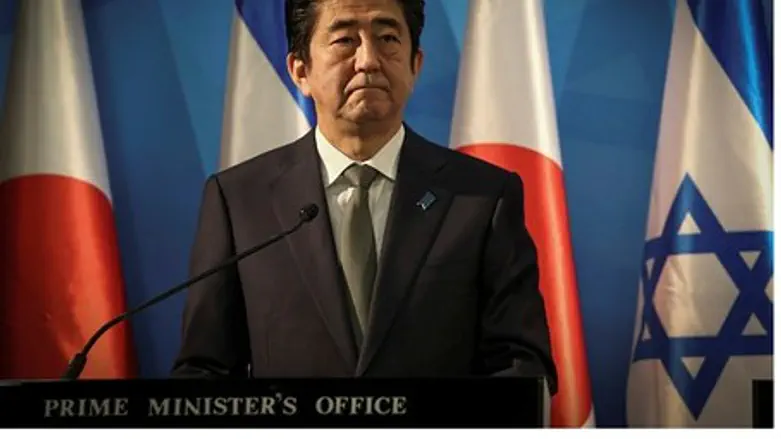
After two Japanese hostages were beheaded by Islamic State (ISIS) terrorists in Syria, Japanese Prime Minister Shinzo Abe hinted at taking part in the US-led fight against ISIS, but Professor Ehud Harari, an expert on Japanese foreign policy, says he may be unable to carry out his promise.
After the second hostage - journalist Kenji Goto - was murdered, Abe said on Sunday "we will cooperate with the international community to make them atone for their crimes."
The statement has led to expectations, primarily among the Americans, that Japan may actively take part in the struggle against ISIS, and Harari told Arutz Sheva that Abe has indeed been advancing Japan's ability to use military capabilities abroad since his election in 2012.
In trying to broaden Japan's military involvement he has given rise to a stormy public debate centered around Article Nine of the Japanese constitution largely crafted by the US after World War II, which forbids sending soldiers to conflicts abroad not related to the direct defense of the island nation.
It remains to be seen whether he will be able to push through a more active military role for Japan, which has in the past seen debate over sending Japan Self-Defense Forces (JSDF) troops for UN peacekeeping efforts abroad.
However, Harari argues Abe's warning of punishing ISIS has no backing due to the constitution.
He adds that the Japanese public opposes increasing the nation's "security profile" abroad, and that Abe "is criticized for the declaration (to give non-military aid to help refugees fleeing ISIS) he made in Egypt when he knew there are two captives in ISIS hands. He will need to maneuver between the two methods."
Part of the Japanese public views the need to respond harshly to the murder of Japanese nationals, while another part thinks a moderate policy is needed, according to the professor.
"There was a feeling that the Japanese government is doing everything to free the hostages," Harari told Arutz Sheva, while adding that the ISIS demand for a $200 million ransom was widely rejected in Japan, both by the politicians and the public.
The professor opined that Japan should have offered to use part of the $200 million that Abe pledged in Cairo for refugees of ISIS in countries around Syria and Iraq to be earmarked for use within Syria, in the form of humanitarian aid. In this way Japan would have proven that its concern is humanitarian and not related to the conflict, he claimed.
Harari published this recommendation shortly following the ISIS ultimatum, but has no way of knowing if the offer was made. In his estimation, however, the Japanese public still believes that the government did all it could to prevent the beheadings.
In the last year, Japan and Israel have turned into key allies, with Abe's efforts to clarify Japan's military standing likely to have an influence on his country's involvement with the Middle East in general, and with Israel specifically.
